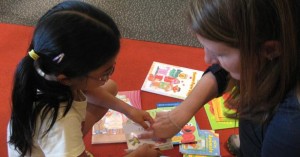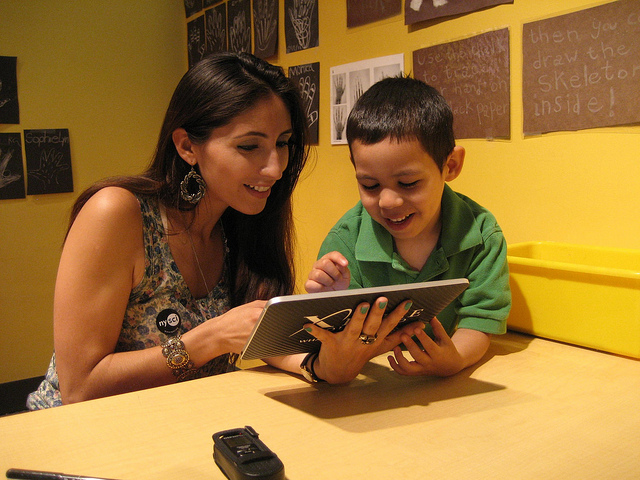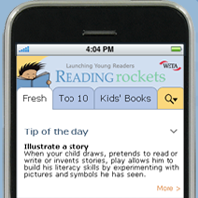 The Library of Congress, along with the Ad Council, are encouraging parents to read with their children. According to , this activity makes children more willing to read and increases the frequency of their reading. They hope to promote a steady daily reading experience for young children, which is difficult for many harried parents, but quite crucial. The messaging is geared around summer vacation, when many children, particularly those from low-income families, experience what is referred to as a “summer slide” in their reading skills. According to the Center for Evaluation, American Academy of Arts and Sciences, reading four to five books during the summer “can prevent reading achievement losses among elementary school students that might normally occur (at that time).”
The Library of Congress, along with the Ad Council, are encouraging parents to read with their children. According to , this activity makes children more willing to read and increases the frequency of their reading. They hope to promote a steady daily reading experience for young children, which is difficult for many harried parents, but quite crucial. The messaging is geared around summer vacation, when many children, particularly those from low-income families, experience what is referred to as a “summer slide” in their reading skills. According to the Center for Evaluation, American Academy of Arts and Sciences, reading four to five books during the summer “can prevent reading achievement losses among elementary school students that might normally occur (at that time).”
To support those efforts, the Library of Congress has selected Curious George, a long time popular story book character, to feature in its public service campaign. The ad copy is inviting: “What makes a curious reader? You do!” and “Share curiosity. Read together.”
This campaign is well timed with an emphasis on intergenerational learning and inquiry. We hope that the campaign is indicative of a needed movement within the publishing industry, as well as toy and electronic game spaces, towards “play together” and “learn together” experiences.
The Cooney Center recently published the report Can Video Games Promote Intergenerational Play & Literacy Learning?, authored by Cynthia Chiong, Ph.D., with a particular focus on literacy among struggling and diverse readers across lower and middle-income families. The publication explores the solid benefits that can occur when parents and kids play games together.
Visit the Library of Congress Curious George page
Read full New York Times article Promoting Literacy the Curious George Way by Jane L. Levere
Download Can Video Games Promote Intergenerational Play & Literacy Learning?




